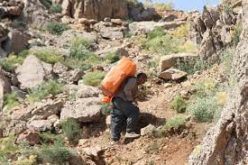themediaexpress – Executions Continue Without Let Up in Iran, Despite Promises of Change at UN General Assembly
The UN General Assembly passed a resolution on December 19, condemned the human rights situation in Iran. The resolution called for significant changes from the regime in terms of human rights and also called for executions, particularly of juveniles, to cease.
In their resolution, the UN General Assembly expressed “serious concern at the alarmingly high frequency of the imposition and carrying out of the death penalty…including the imposition of the death penalty against minors and persons who at the time of their offense were under the age of 18, and executions undertaken for crimes that do not qualify as the most serious crimes, on the basis of forced confessions,” and called on the Iranian regime “to abolish, in law and in practice, public executions.”
The Iranian delegate claimed that the regime was committed to making changes, but a recent Human Rights Watch report from the National Council of Resistance of Iran (NCRI) would argue that the regime is acting just as they always have.
The area of executions is one of the critical aspects of the regime’s justice system that many in the international community have called for significant change, such as a moratorium on all executions. One example was the public hanging of two people on charges of killing a police officer. Government sources published a film showing one of the defendants being hanged.
According to the state-run Rokna News Agency, “After the pursuit was completed, this case was under special investigation upon order of the Isfahan’s Prosecutor. Two perpetrators of the incident were sentenced to death in public.” The identity of the persons executed was not published.
When it comes to drug trafficking, the regime has continued to put individuals to death, despite the fact that these deaths have not been a deterrent to the increasing number of individuals using drugs or suffering from an addiction. Recently, 15 members of a drug trafficking gang were tried, with 14 members being sentenced to death. The only member not sentenced to death was a woman, who received a sentence of 11 years in prison.
These sentences have limited affect in deterring drug use, but they show that the regime’s answer to any crime is to give a sentence of death. The need to use executions to repress and keep the Iranian people under control is evident in those death sentences of individuals accused of spying. Many of these individuals are actually Iranian citizens who live abroad, even having dual citizenship, although the Iranian regime does not acknowledge dual citizenship of any kind.
Ahmad Reza Jallali, Iranian academic was arrested and charged with giving away information about the Iranian missile program and its nuclear sites. He was arrested in May 2016 and has now been sentenced to death. For those Iranians who live outside of Iran, visiting family can be risky. Many individuals have been arrested after a visit and then accused of vague crimes before being sentenced to long prison terms or even death. Many are denied the most basic rights, including legal representation and a fair trial. They are limited in their ability to defend themselves and the Iranian judiciary hands down harsh sentences, often disproportionate to the crime itself.
Women are also sentenced to death, although not as many as men. One woman accidently killed her husband, and was recently sentenced to death. She was originally acquitted of the charge of intentional murder and ordered to pay blood money to the victim’s family. Now, that has been overturned and her death sentence, known as a retribution sentence, has been confirmed by the Supreme Court.
Executions are not the only form of punishment used by the regime. They also use other forms of cruel and inhumane treatment in order to intimidate or get confessions from individuals on a variety of charges. Ms. Zamane Zoyvie, Kurd student was sentenced to 50 lashes and a fine on charges of disrupting public order. She was arrested in the street outside of her home after street celebrations in support of a Kurdistan independence referendum. The legal procedure was ambiguous to say the least, and she was also charged and tried for acting against national security, participating in illegal gatherings and disrupting order.
Yet, one of the most serious human rights violations by the regime involved the execution of 30,000 political prisoners in 1988.
“The most significant example of serious human rights violations in Iran is the massacre of political prisoners in 1988 in which all the clerical regime’s officials, specifically Ali Khamenei, as well as the mullahs’ judiciary and the highest officials in charge of security and intelligence agencies were involved and complicit. They defend it but have so far remained immune from prosecution. Therefore, the international community faces a great test in investigating this great crime against humanity and prosecuting its perpetrators,” said Maryam Rajavi, President-elect of the NCRI. She urged the UN to launch an investigation into the 1988 massacre.
 Shabtabnews In this dark night, I have lost my way – Arise from a corner, oh you the star of guidance.
Shabtabnews In this dark night, I have lost my way – Arise from a corner, oh you the star of guidance.


